How Palestinian prisoner in jail for 20 years won coveted literary prize for his book
By Humaira Ahad
"Here, ladies and gentlemen, where you stand, lie the ruins and remnants of the Arab Palestinian village of Sar'a.
"It was plundered, and its people, numbering 400 souls, were expelled in July 1948. Yes, expelled. Now, they languish as refugees in camps. Zionist gangs destroyed the village, erecting in its place the Kibbutz Sar'a.
“No superheroes… No tombs for superhuman heroes. Where you stand, there is only catastrophe and a people expelled from their land."
This is an excerpt from the award-winning book, “A Mask, the Colour of the Sky” authored by imprisoned Palestinian author Basim Khandaqji.
Khandaqji, who has been languishing in Israeli jails for the past 20 years, recently won the 17th International Prize for Arabic Fiction for his book, published by the Lebanon-based publishing house, Dar al-Adab.
Attending the award ceremony on the author’s behalf, his brother Yousef Khandaqji dedicated the prestigious literary award to the people of Palestine reeling under the Israeli occupation.
“Speaking on behalf of my dear brother, he dedicates this victory to all the Palestinian people,” he said in the acceptance speech.
“I miss him every day and he is in our hearts every day.”
Khandaqji was born in the occupied West Bank city of Nablus in 1983. In 2004, the regime forces arrested the celebrated author and poet while he was in the final year of his bachelor’s degree in the Department of Journalism and Media at An-Najah University.
The Palestinian writer was falsely charged in a case of suicide bombing in Tel Aviv in 2004. He is presently serving three life sentences in an Israeli prison.
Khandaqji is perhaps not aware that he won the top Arabic book prize as his family has not been allowed to meet him since October 7, 2023, when the Palestinian resistance launched Operation Al-Aqsa Storm against the Israeli regime.
In response, the regime resorted to indiscriminate bombings against Palestinians in the besieged Gaza Strip, which have so far killed more than 34,700 people, most of them children and women.
“He is currently a prisoner inside the Israeli colonial occupier prisons, and there has been no means of communicating with him for the past four months,” his brother was quoted as saying in an interview with the organizers of the literary festival last month.
“We hope and pray that he will be released as soon as possible.”
The Resilient Spirit
As a teenager in the occupied West Bank, Khandaqji wrote short stories. After his arrest at the age of 21, he continued his passion for writing even under difficult circumstances at various Israeli jails.
The writer “would only write from 5 am to 7 am, that is what Basim told me on one of the monthly visits which last only 45 minutes,” Yousef Khandaqji told an Arabic news website.
“He writes before the prison administration counts the prisoners and before the prison guard starts making a racket, which he is adept at finding new ways of doing,” the author’s brother said.
“In these two hours, Basim writes approximately two pages, and very often the papers are taken from him and destroyed by the guard. It happens to all the prisoners who are writing while in detention.”
While narrating the ordeal of Palestinian prisoners in Israeli jails, Samih Mohsen, a Palestinian poet, paid tribute to their patience and perseverance.
“The prisoner uses cigarette paper to write his letters, and it is called the “capsule” because it is folded to become the size of a medicine capsule. I was puzzled by the patience and perseverance of its writer because I was using a magnifying glass to read what was written,” Mohsen said.
Since his imprisonment at the age of 21, Khandaqji has obtained a degree in political science from Al-Quds University, occupied Al-Quds, and published a poetry collection and novels while serving three prison terms.
His published works include two books of poetry, Rituals of the First Time (2010) and The Breath of a Nocturnal Poem (2013) – and three novels, The Narcissus of Isolation (2017), The Eclipse of Badr al-Din (2019) and The Breath of a Woman Let Down (2020).
The 41-year-old author has even tried to maintain links with his political party. He was elected a member of the political bureau of the Palestinian People’s Party.
Presently, he serves as the party's representative in the National Emergency Committee for the Prisoner Movement, which shows his unflinching allegiance to the Palestinian cause.
"If I must die, you must live to tell my story"
— Press TV (@PressTV) December 10, 2023
Humans of Gaza: Dr. Refaat Alareer, a celebrated poet, professor & activist falls victim to Israeli savagery#HumansOfGaza #GazaGenocide pic.twitter.com/2WHpfP3EGM
His award-winning book
The protagonist of the book that won him the 17th International Prize for Arabic Fiction, is the Palestinian archaeologist Nurlives who lives in a refugee camp near the occupied Ramallah.
Nur, who faces daily checks and harassment from Israeli occupation soldiers finds an Israeli identity card and uses it to get an Israeli residency permit. He transforms into Ur Shapira, through whom he explores and understands the Israeli world.
The novel digs into primary themes for Palestinians, such as forms of resistance and confronting the Israeli occupation.
“The novel took six months to write, while the research side took several years in difficult and complicated circumstances, as Basim was inside various prisons, moving from one prison to another because of the arbitrary measures taken by the prison service administration,” Yousef Khandaqji said.
“Occasionally he would lose some of the information he collected because a prison guard destroyed it.”
The novel is divided into three sections. In the first part, Nur tells Murad, a fellow prisoner, about his desire to write about Mary Magdalene (disciple of Prophet Jesus) and the challenges he is facing in collecting historical material about her.
Nur conducts his own historical research to learn the story of Mary Magdalene, trying to understand every detail of the era and of those in her life.
He then connects her story with the ongoing Israeli aggression in al-Quds and other Palestinian territories, where the regime seeks to erase any trace of Christian and Islamic heritage and history.
This leads him to join the archaeological excavation in the occupied Jerusalem al-Quds, where he finds the ID card and adopts the identity of 'Ur' using documents and language.
“As far as inspiration goes, Basim is inspired by ancient and contemporary Palestinian history. He based his novel on his reading of research and studies about Palestinian history, including eyewitness accounts of some of the prisoners inside and outside prisons, especially the Palestinians living inside Israel,” Yousef Khandaqji said.
Devoted to Palestine, with every piece of news Nur hears about Palestine and Palestinians, he struggles with his desire to return to his roots.
In 2021, when Palestinian families were forcibly evicted from the Sheikh Jarrah neighborhood, with thousands arrested from the occupied East Jerusalem to make way for the Zionist settlers, Nur’s longing for his origin got intense.
In the book's third section, Sky, the confrontation between his Palestinian and adopted Israeli identity deepens during his work on the kibbutz Mashmar HaEmek.
The novel oscillates between Nur, the Palestinian, and his suffering and Ur, the Israeli settler. Positioned between the two, the author attempts to see things from all perspectives.
As he immerses himself in the excavation to learn about Mary Magdalene, the land assumes the primary character, exhibiting the years of research Khandaqji undertook.
The novel, “dissects a complex, bitter reality of family fragmentation, displacement, genocide, and racism,” said Nabil Suleiman, a Syrian writer who chaired the 2024 prize.
“The strands of history, myth, and the present day are delicately woven together in a narrative that pulses with compassion in the face of dehumanization and is stirred by a desire for freedom from oppression, both at an individual and societal level. A Mask, the Colour of the Sky declares love and friendship as central to human identity above all other affiliations,” added Suleiman.
Palestinian prisoners’ plight
“Murad... Silence inhabits me in this solitude in prison, and it has made me long for my father’s silence in the alleys of the refugee camp,” Khandaqji writes about the plight of his protagonist in “A Mask, the Colour of the Sky”.
As per the statistics from Addameer Prisoner Support, a Ramallah-based human rights group, 9,500 Palestinians from Gaza and the occupied West Bank are currently in Israeli captivity.
In other reports, Palestinian prisoner groups say the occupying army has arrested more than 8,000 Palestinians from the occupied West Bank alone since 7 October, including 280 women and at least 540 children.
In December last year, Israel claimed to have 1,000 captives from Gaza. Rights groups believe the real number of Palestinian prisoners from Gaza is higher than what the regime claims.
Since the events of October 7 last year, thousands of Palestinian workers have been arrested by Israel, and their fate remains unknown to their families and friends.
According to a March 7 report by the Israeli newspaper Haaretz, at least 27 Palestinians from the Gaza Strip have died in Israeli jails since October 7. Israel has refused to hand over the bodies of slain Palestinians to their loved ones for proper burial.
Various human rights groups have highlighted the degrading treatment and horrifying torture that Palestinians are facing in various Israeli prisons on bogus charges and without trial.
United Nations Agency for Palestinian Refugees (UNRWA) released a report on Palestinian Prisoner’s Day on April 17 detailing shocking abuses experienced by Palestinians held in Israeli jails.
“Several detainees reported being forced into cages and attacked by dogs. Some released detainees, including a child, had dog bite wounds,” the report stated.
The UN report added that Palestinian detainees were “being made to act like animals or getting urinated on…deprivation of water, food, sleep and toilets, denial of the right to pray and prolonged use of tightly locked handcuffed causing open wounds and friction injuries.”
A UN report released earlier this year said at least two female Palestinian prisoners faced sexual abuse in Israeli jails. The real number, however, is believed to be much higher.
In the recent report, Palestinian women described “being exposed to psychological abuse, including insults and threats, as well as inappropriate touching during searches and as a form of intimidation and harassment while blindfolded. Both men and women reported being made to strip naked in front of male soldiers during searches and being photographed and filmed while naked.”
“They were beating us as we moved and saying they would put pepper on our sensitive parts [genitals]. They pulled us, beat us, and took us on the bus to the Damon prison after five days. A male soldier took off our hijab, pinched us and touched our bodies, including breasts,” a 34-year-old female detainee said.
Biden plays down Palestinian genocide, calls it Gaza 'humanitarian crisis'
World reacts to Iranian president's helicopter incident
Israel seeks to spread chaos by targeting police officers: Gaza
Israel understands nothing but logic of force: IRGC chief
Leader prays for safe return of President Raeisi after helicopter incident
UN aid chief warns of 'apocalyptic' consequences of shortages in Gaza
‘Humanity is with Raeisi’: People worldwide pray for Iranian president’s safety
Hostilities near Kamal Adwan Hospital ‘deeply worrisome’


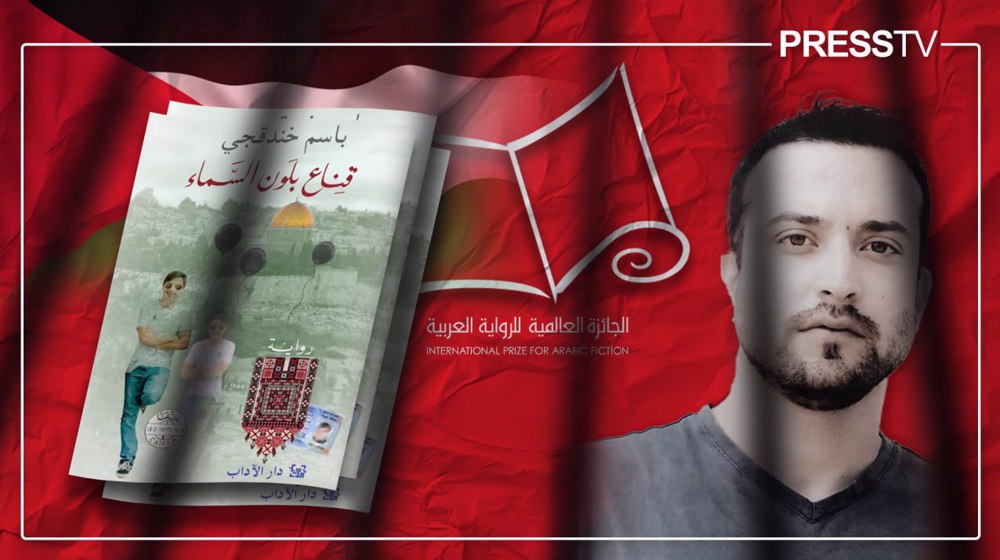
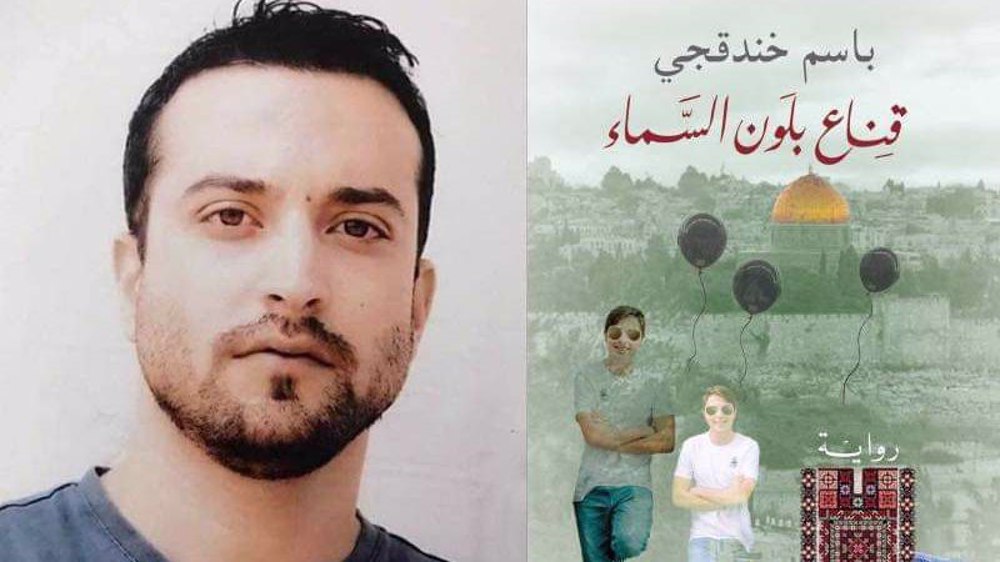
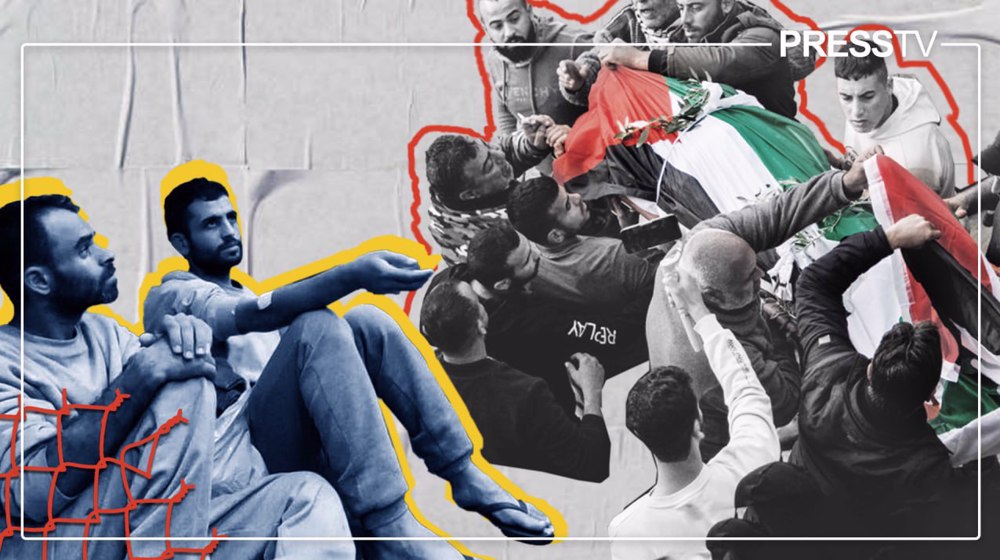
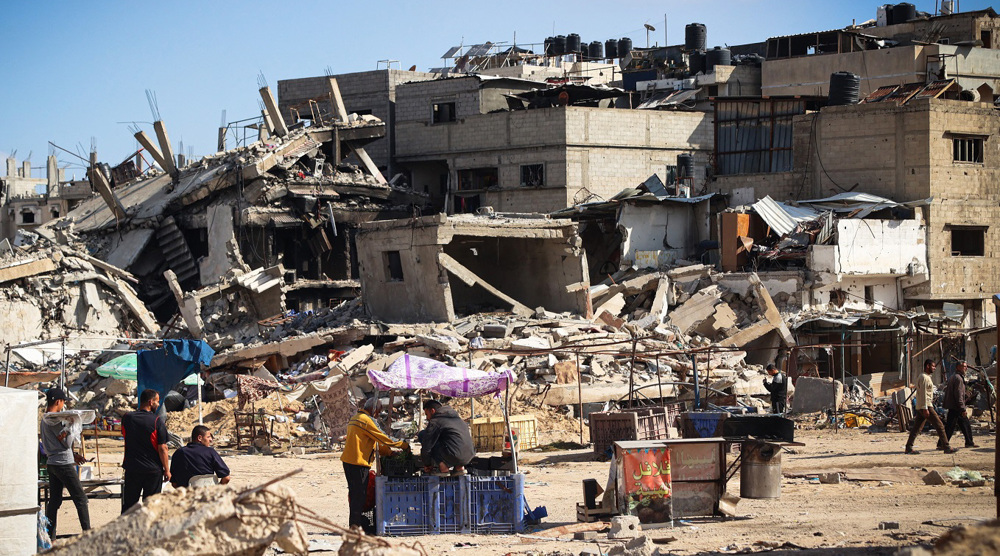
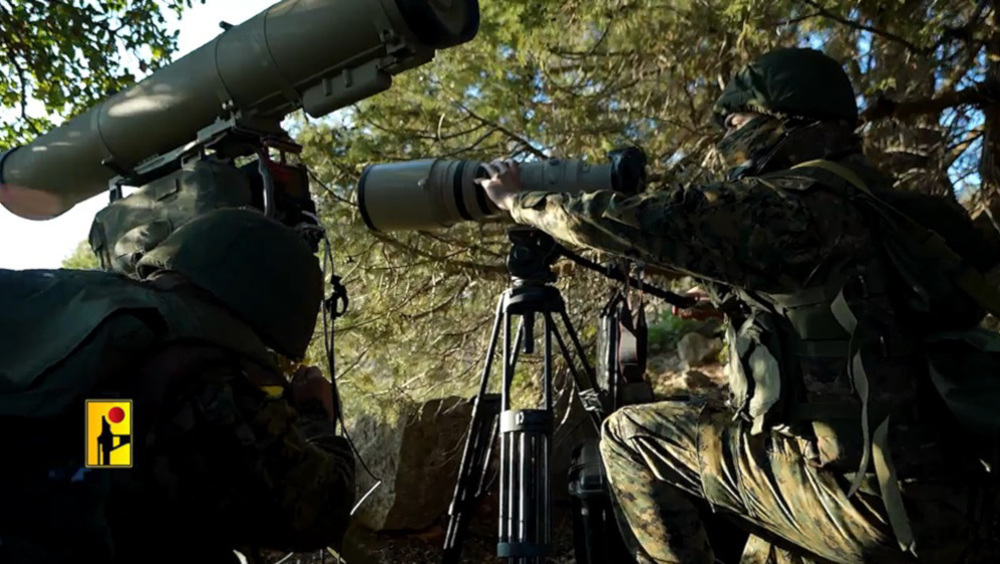
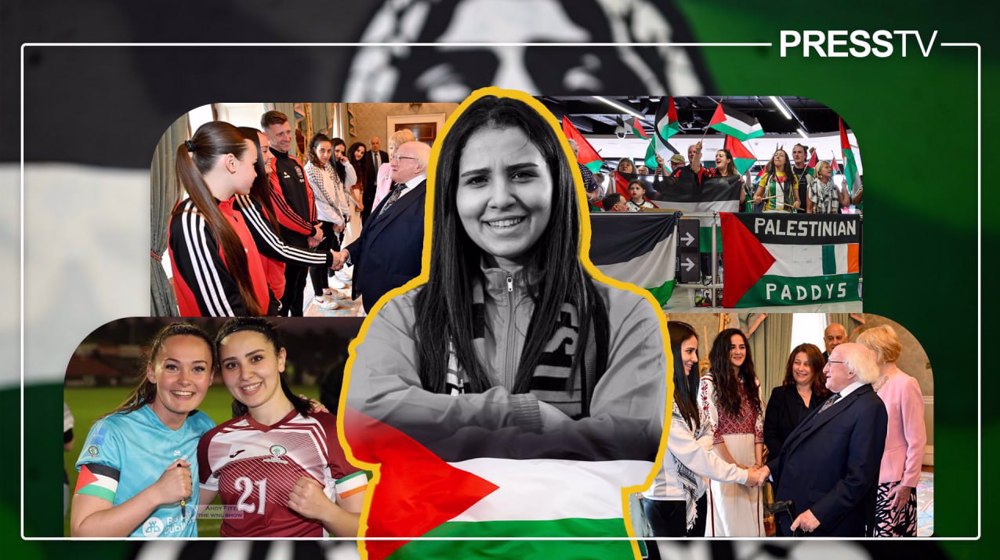



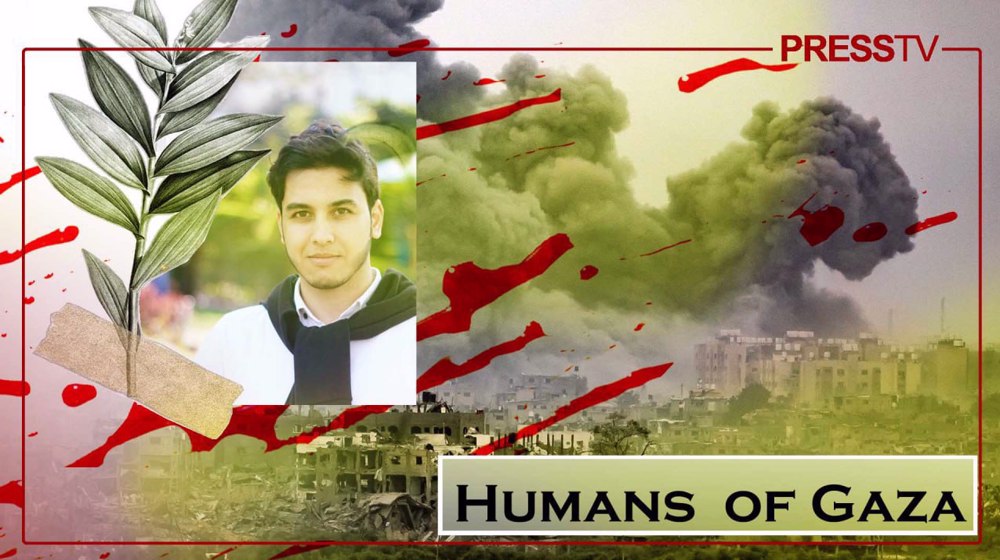
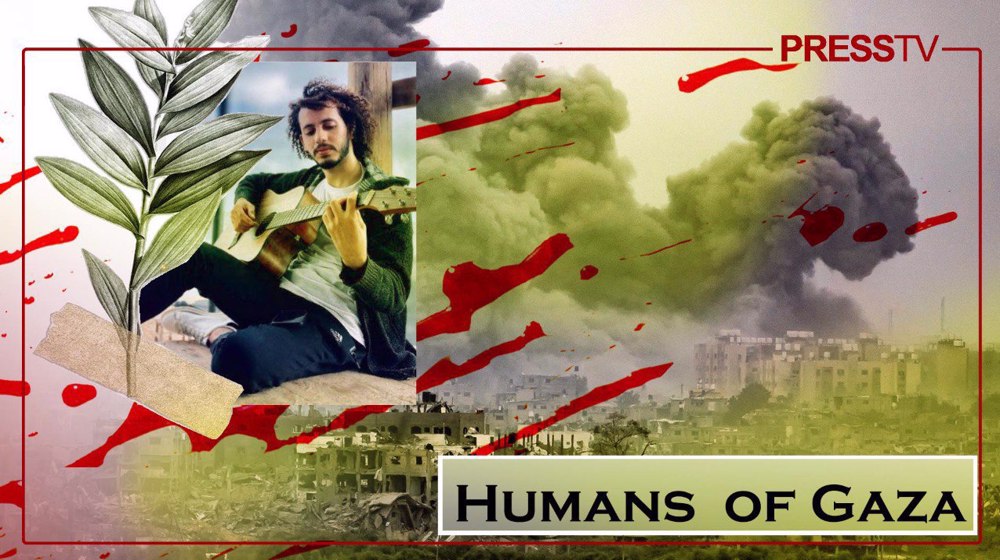
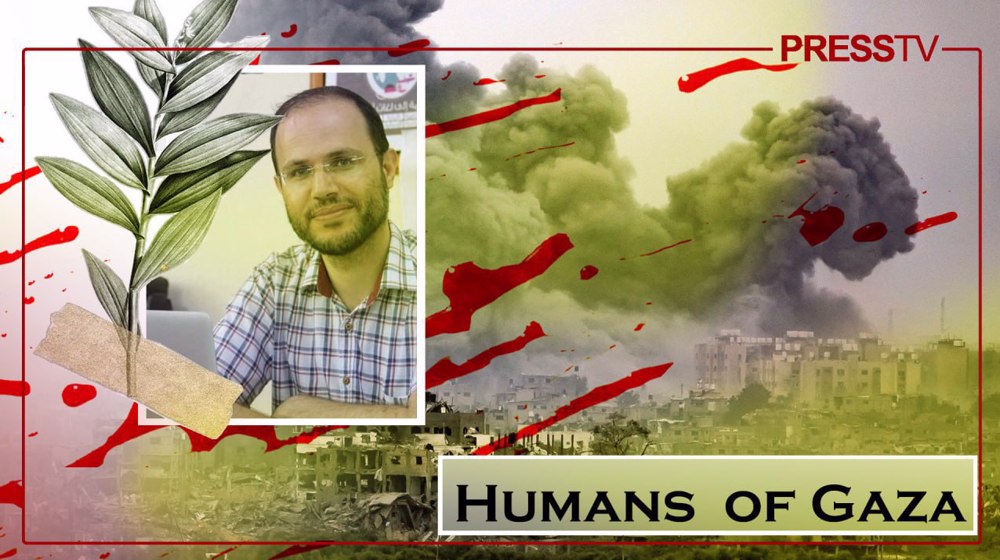
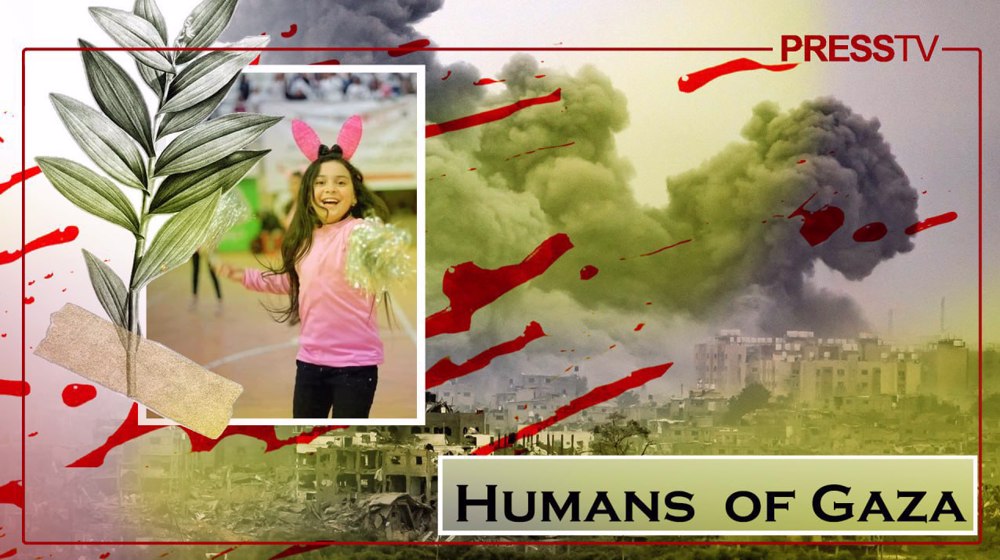
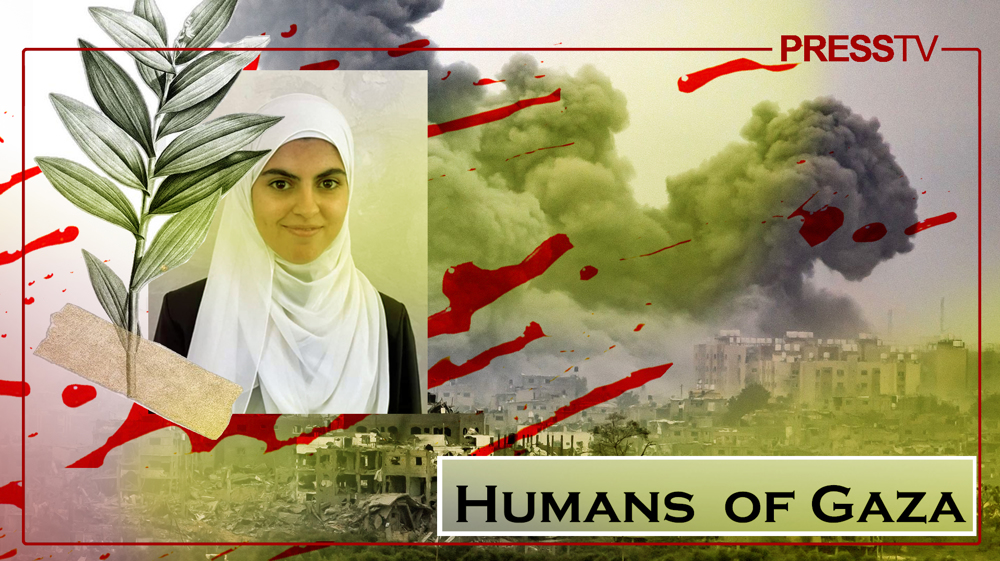

 This makes it easy to access the Press TV website
This makes it easy to access the Press TV website